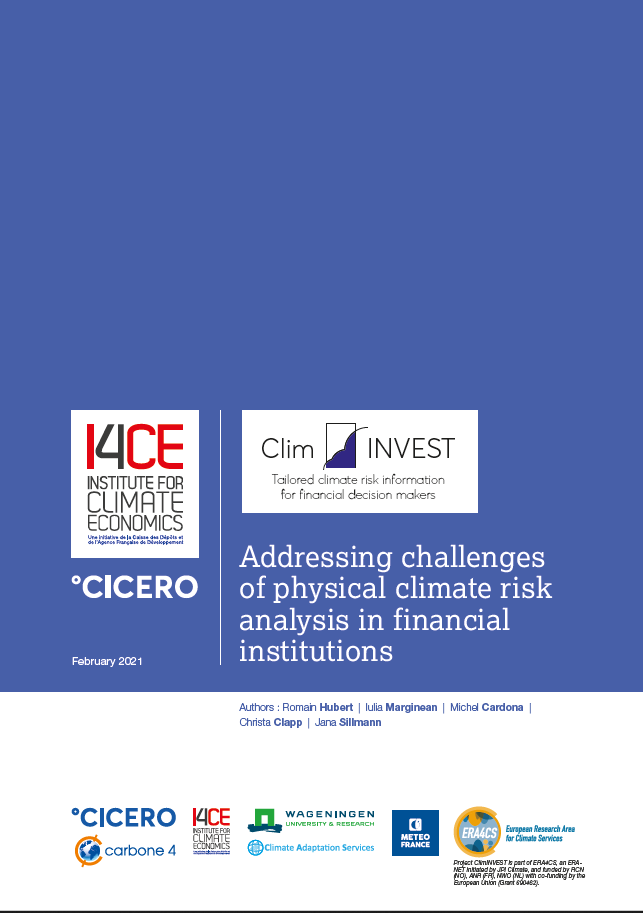Addressing challenges of physical climate risk analysis in financial institutions
While the financial consequences of climate impacts are already materializing, the regulators are implementing their agenda of actions to stimulate financial institutions into analyzing and managing their exposure to “physical climate risks”, and disclosing how they do so as recommended by the TCFD. How can financial actors make quick and efficient progress on analyzing and managing these risks?
I4CE and CICERO release a synthesis report of practical lessons from the ClimINVEST project: a 3-year collaboration between European climate experts and financial institutions to move forward with physical climate risk analysis and management. The project gathered ClimINVEST partners Carbone 4, Climate Adaptation Services, CICERO, I4CE, Météo France and Wageningen Environmental Research as well as a number of financial institutions in France, the Netherlands and Norway. The participating institutions in France included AFD, BPCE, la Caisse des Dépôts, HSBC, Natixis.
The project shed light on four major challenges that were partly mitigated during the project: the tragedy of time horizons; the black box of climate services; data accessibility; the quantification of financial impacts.
There is still much work to do though. The report summarizes priority action points based on feedbacks from twelve financial institutions involved in the project and from the research partners. Financial actors should build further expertise on physical climate risks and experiment climate risk assessment on their own portfolios. To do so, they can capitalize on the publicly available ClimINVEST resources listed on the figure below. Mobilizing not only financial actors but also a broader range of stakeholders will also be a key determinant for quick progress on physical climate risks in finance. Regulators, supervisors, scientists, service providers, municipalities, etc. all have a role to play.
Access the clickable links of the graphic
Click on this button to see the image
Romain Hubert, Project Manager at I4CE, explains in two minutes what the physical climate risk is and the challenges faced by banks :


